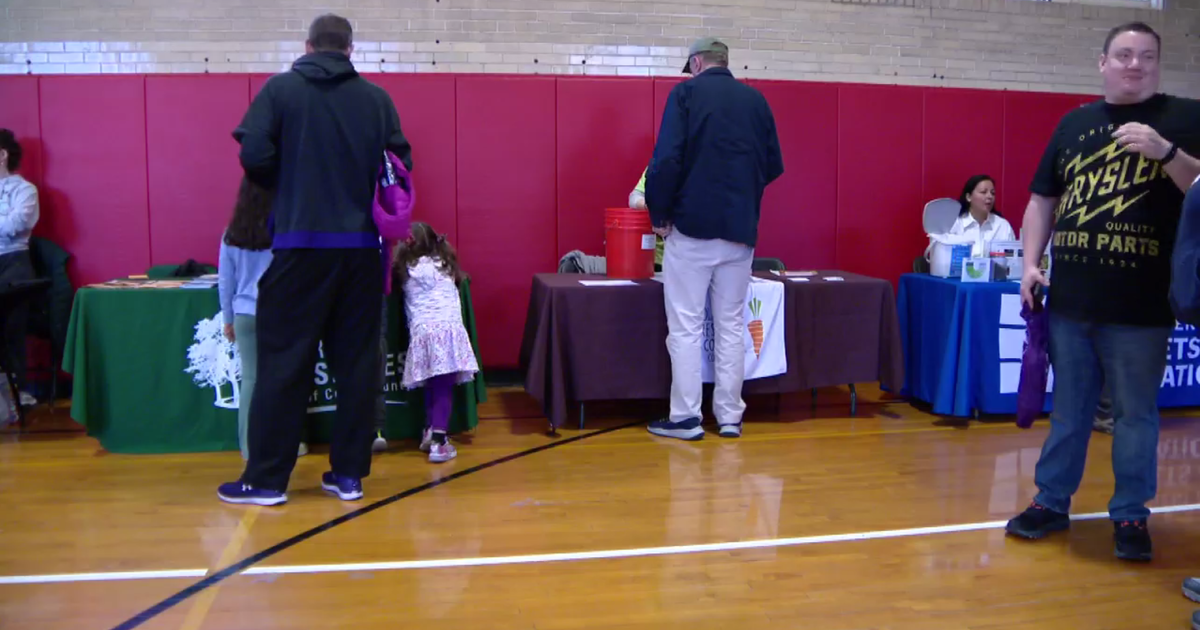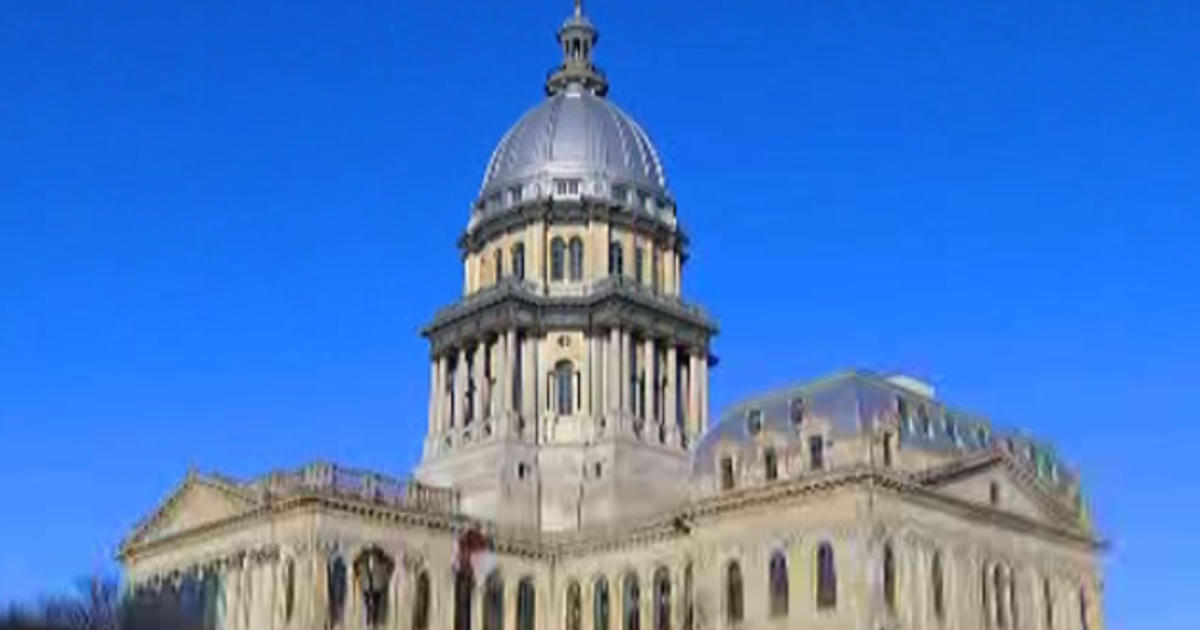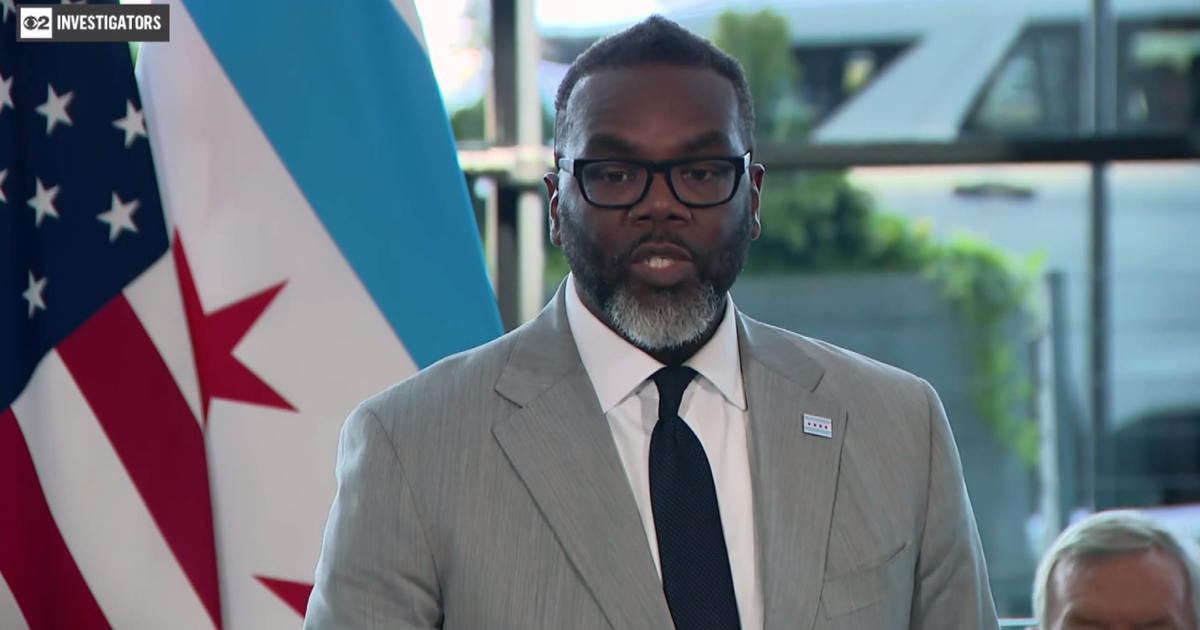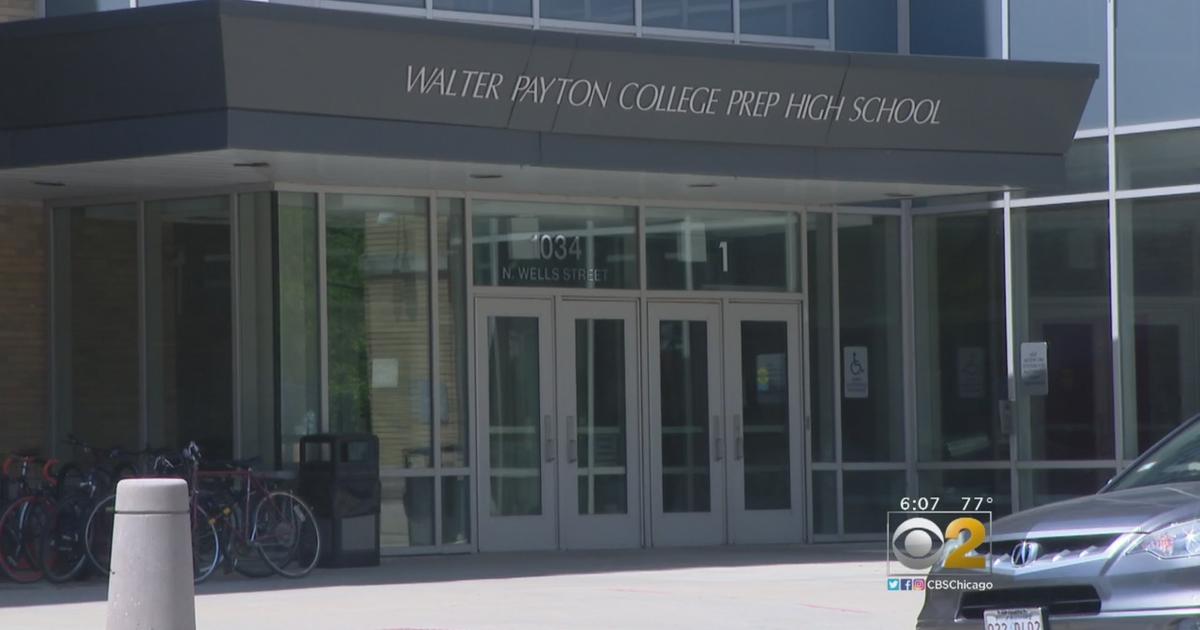Mayor Lightfoot Addresses State Of COVID-19 Pandemic In Chicago, Vaccine Distribution On 'Face The Nation'
CHICAGO (CBS) -- On CBS News' "Face the Nation" Sunday, Mayor Lori Lightfoot talked about the state of the coronavirus outbreak in Chicago and her prospects for vaccine distribution.
As "Face the Nation" moderator Margaret Brennan noted, the Centers for Disease Control and Prevention said the state of Illinois reported more coronavirus deaths than any other state in the nation over the past seven days.
Chicago has been under a stay-at-home advisory since Monday, Nov. 16. Brennan asked the mayor if the advisory was having an impact fighting the spread of the coronavirus.
"I think it has," she said. "We went from well over 2,000 cases a day. Now we're down to about 1,300. Not where we want to be by any stretch, but a significant improvement just over a couple of weeks."
Mayor Lightfoot noted that concern remains about a post-Thanksgiving surge.
"But I think everything that we can do to heighten people's awareness that this second surge is just as deadly, if not more so than the first is critically important," she said. "So I do think that these advisories make a difference."
Brennan noted that when Mayor Lightfoot appeared on "Face the Nation" early on in the pandemic, she said half of those dying of COVID in Chicago were Black, even though Black Chicagoans make up only 30 percent of the city's population. Mayor Lightfoot said those numbers have improved, but a concern remains.
"We're seeing people of color, both Black and Latinx, leading in the number of cases infected, but also leading in deaths," she said. "We've done a lot, I think. Certainly, the treatments have improved because we've learned a lot more about this virus. But it's still a concern because of the underlying health disparities that bring on comorbidities that make Black and brown Chicagoans more susceptible to the worst results of this disease."
Mayor Lightfoot also addressed vaccine distribution, and how much discretion she will have as mayor to decide who will get the vaccine and when.
"Well, we really get no discretion because part of the agreement with the federal government is that we agreed to the specific prioritization protocol that they put forward," the mayor said. "But I think the good news about that for a city like Chicago is obviously our frontline health care workers are going to get it. They are very diverse. Our essential workers will be next in the queue. They are extraordinarily diverse and really lean towards people of color. So there will be an equity lens as it applies to distribution of the vaccine here in Chicago."
As to who is determined to be essential and thus farther up in the line, Mayor Lightfoot reiterated that the CDC makes that decision – and health care workers will be first.
"We expect to get the first tranche of vaccines here in the next couple of weeks. That's already predetermined to go to the frontline workers who are dealing directly with COVID patients," Mayor Lightfoot said. "We expect to get around 23,000 doses. Now, that's a fraction of what we will need. But we've been working with our hospital partners to identify those within their workforce who are going to be front of the queue to get the early doses of the vaccine."
First responders will also be at the top of the list after frontline health care workers, Mayor Lightfoot said.
"The most important thing is making sure that we get a robust supply of a vaccine so we can get it distributed as effectively as possible," she said.
Brennan also asked Mayor Lightfoot about racial disparities when it comes to trust in vaccines. Brennan noted that a study from the NAACP said only 14 percent of Black people trust that a vaccine will be safe and 18 percent trust it will be effective, while 34 percent of Latinx people trust that the vaccine will be safe.
Brennan asked Mayor Lightfoot how she would convince Chicagoans to take the vaccine?
"We're going to do this in a number of ways," Mayor Lightfoot said. "Number one, we have organized here locally a scientific advisory panel made up of diverse practitioners who are going to verify and validate the process by which this vaccine has been produced. So, I think that's critically important. We're then also looking at a variety of trusted community leaders from the medical profession, but also local stakeholders who themselves are also going to be on the front lines of getting this vaccine."
Mayor Lightfoot note that the city has launched a door-to-door campaign, particularly in parts of the city hit hardest by the virus and with the highest case positivity rates.
"But bottom line is, we've got to get local trusted leaders who are going to validate why it's important to take the vaccine," she said. "I can talk all I want, but people have to trust their neighbors and stakeholders in the community. And that's why we've activated this group of folks to be really the spokespeople about the vaccine."
Mayor Lightfoot also addressed the city's latest budget plan. Late last month, the City Council on Tuesday approved Mayor Lori Lightfoot's $12.8 billion spending plan for 2021, including a $94 million property tax hike.
Aldermen voted 29-21 to approve the mayor's spending plan, and 28-22 to back the property tax hike. It was the tightest margin of approval for any city budget in at least 30 years.
Brennan noted that the city has also taken out a loan for $450 million in the short term, and is even borrowing against future recreational marijuana revenues in an effort to avert layoffs.
Mayor Lightfoot emphasized that the latest city budget was passed on the assumption that no more federal money would be coming – but said it would be a tragedy if that scenario did come to pass.
"That would be a tragedy not just for Chicago, but also for the people who really depend upon the kind of services that the government provides: our seniors, our young people, the most vulnerable population, homeless and so forth," she said. "So, I hope that the partisan divide that has prevented a package from getting to the President's desk will actually be broken through."
Mayor Lightfoot noted that everyone has been affected by COVID-19 economic impacts regardless of their politics.
"And we just need to make sure as mayors and governors, we continue to beat that drum so Congress does its work and gets a package to the President's desk for signature," she said.
Also From CBS Chicago:
- Buffalo Grove Man At Odds With Village Over Holiday Light Display
- Former Illinois State Sen. Martin Sandoval, Caught In Federal Corruption Probe, Dies Of COVID-19
- COVID In Illinois: Massive Northbrook Hotel Wedding Reception Called Potential 'Super-Spreader Event' By Cook Cook County Health Department



